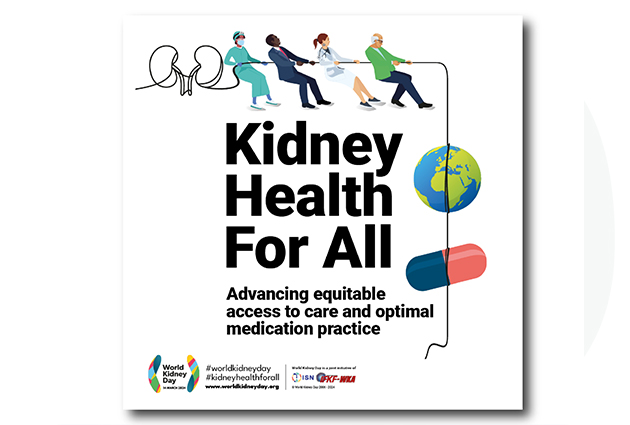New global kidney health report sheds light on current capacity around the world to deliver kidney care
Bangkok, March 30, 2023, 10 a.m. ICT – Today (March 30, 2023), at the Professor Donal O’Donoghue Global Kidney Policy Forum at the World Congress of Nephrology (WCN 2023) in Bangkok, Thailand, the International Society of Nephrology (ISN) presented the highlights from its third, 2023 edition of the ISN-Global Kidney Health Atlas (ISN-GKHA). A multinational study surveying the burden of kidney disease, the 2023 ISN-GKHA shows that, from the approximately 850 million people affected by chronic kidney disease (CKD) worldwide, people of every age and race are affected, and people from disadvantaged populations are at higher risk.
The 2023 ISN-GKHA also reveals that the global burden of kidney failure remains significant, due to high treatment costs and extensive impacts on the health and well-being of people living with kidney disease. Identifying gaps in key aspects of kidney care across the world, the 2023 ISN-GKHA shows that these gaps are particularly prevalent in low- and middle-income countries, although a comparison to the previous (2019) edition reveals some important positive changes in worldwide capacity to deliver kidney care, this particularly via a notable growth in dialysis facilities around the world.
New features of the 2023 ISN-GKHA include:
- Direct involvement in the survey of people living with kidney disease: their perspectives on the barriers they face in accessing kidney care, and the impacts of kidney failure on their quality of life.
- A record number of participating countries: 167 countries representing 97.4% of the world’s population.
- Granular data collation on the non-dialytic management of kidney failure (Conservative Kidney Management).
- Inclusion of information on chronic kidney disease of unknown origin (CKDu).
- A new section assessing the workforce involved in pediatric kidney care.
- Comparative data analysis and trends over time since the first ISN-GKHA published in 2017.
- Scorecards on changes in capacity for kidney care across world regions and countries.
KEY RECOMMENDATIONS
- Overall, the 2023 ISN-GKHA results reveal significant inequities related to essential components of high-quality kidney care. Key recommendations for closing these gaps are as follows:
- Increase health care financing for kidney disease prevention and management.
- Address workforce shortages by developing effective multidisciplinary teams, task shifting (e.g., allowing primary care practitioners to play a greater role in treatment), and harnessing the potential of telemedicine.
- Develop and implement context-specific surveillance systems based on available capacity and resources.
- Promote kidney disease prevention and treatment by implementing policies, incorporating CKD into global noncommunicable disease strategies, supporting advocacy groups, and mitigating barriers to care.
- Support the development of innovative, cost-effective dialysis delivery technologies.
- Develop appropriate legislative and policy frameworks to support kidney transplantation in all countries.
- Increase access to conservative kidney management where appropriate.
By sharing these findings and recommendations, the report aims to guide policy and advocacy efforts to promote optimal and universal kidney failure care and to provide benchmarks that will help countries track their progress over time.










